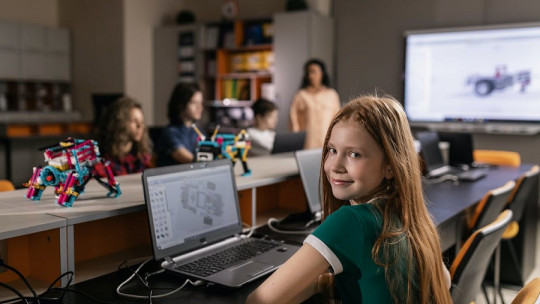
The adolescent period is a complex and confusing time during which the person experiences all kinds of changes. Both our body and our mind transform and prepare us for the arrival of adulthood.
All these changes and transformations have an important effect on the confidence of young people, which can be reinforced or, on the contrary, significantly damaged. Luckily, there are a series of guidelines or dynamics that can be carried out from home to improve the confidence of young people as well as their self-esteem.
What is confidence like during youth?
The correct development of self-confidence is of vital importance during the adolescent period, so knowing how to strengthen it from home can be of great help to them. Strengthening confidence during your youth helps promote psychological development and self-confidence. This security is the basis for the person to face the outside world in a healthy and beneficial way.
Self-confidence refers to the perception one has about one’s own ability to carry out any act, project or to solve any type of problem. Usually, people who have great self-confidence tend to perceive situations of change as something they can face without fear and generate strategies to resolve them much more easily.
The achievement of high and solid levels of confidence will lay the foundations for the correct development of other psychological constructs of vital importance for the person. Among these constructs are the development of correct self-esteem, as well as the acquisition of autonomy that allows you to face the world on your own and in a satisfactory way.
However, this is an arduous and difficult process at a time when changes are the order of the day. Therefore, stimulation and reinforcement from home can promote the development of solid and positive self-confidence.
It is necessary to understand that this help will not always be well received by adolescents, who feel the need to go through this stage alone or with the company of their peers, but not with their parents. This fact should not generate frustration in parents they must understand that it is part of the stage that their children are going through and that they can also help them.
8 guidelines to improve the confidence of young people
Observing how children grow is not an easy task, the stage of adolescence is a delicate time for both children and parents, the relationship between them can become confusing and, at times, tense.
The adolescent’s need for autonomy, together with the parents’ concerns and desire to help, can lead to a conflict in their relationship. However, parents can play an active role in developing their children’s confidence, without them perceiving it as an act of overprotection.
Below we offer 9 guidelines or suggestions that parents can carry out to boost their children’s confidence without the relationship between them being affected:
1. Recognize and reinforce your progress
Although they do not show it constantly, the opinion that parents have of their children is important to them. Therefore, if parents spend much more time talking to their children about their mistakes and failures, They may end up thinking that they don’t know how to do anything well which only have defects.
In this way, talking about successes, applauding their achievements and positively reinforcing them will promote security and self-confidence and motivate them to improve.
2. Be close parents
Close does not equal overprotective. Young people feel the need to know that their parents will always be by their side no matter what happens. Perceive home and family as a refuge to go to When things are not going well it is extremely important to maintain the adolescent’s confidence, although on many occasions their behaviors and words say otherwise.
3. Ask for their opinion
Asking for the children’s opinions, as well as taking them into account, every time a decision must be made at home makes them feel important. Knowing that your ideas are taken into account can boost your confidence, and will help them create problem-solving strategies which will be extremely useful to them in the outside world.
4. Support their interests
Although the interests of young people are not always in line with those of their parents, the latter should support them in discovering their hobbies and curiosities.
Adolescence is characterized by being a confusing stage, in which Young people are not always clear about what they want to do with their lives or their free time, so it is very likely that they will go from one activity to another until they find the one that really motivates them.
In any case, parents should always be understanding and reinforce interests, since this will be what their children remember.
5. Spend time with them
This point is closely related to the previous one. Spending time with your children, doing activities that they like, will help them strengthen their confidence and motivation to continue with it.
6. Let them choose for themselves
The ability to make one’s own decisions It is one of the things that most favors the development of trust, even if it does not turn out well later.
Although parents feel the need to guide their children, they must perceive that they have a high degree of autonomy and that, as we said before, even if they make mistakes, their parents will be with them.
7. Let them learn from their mistakes
This point is closely related to the previous one, the ability to make decisions is always associated with the possibility of making mistakes, so, even though parents suspect that something is not going to turn out well, they must allow it to be wrong.
In the same way, they also have the obligation to let the child solve their own problems. In these cases, parents can express their support and they can even propose possible solutions, but never impose them.
8. Be careful with criticism
There are many ways to say things and criticism often ends up creating a barrier between parents and children. Always advising by highlighting the positive aspects of the young person is much more constructive than dedicating yourself to examining and judging his behavior or his tastes in a negative way.








